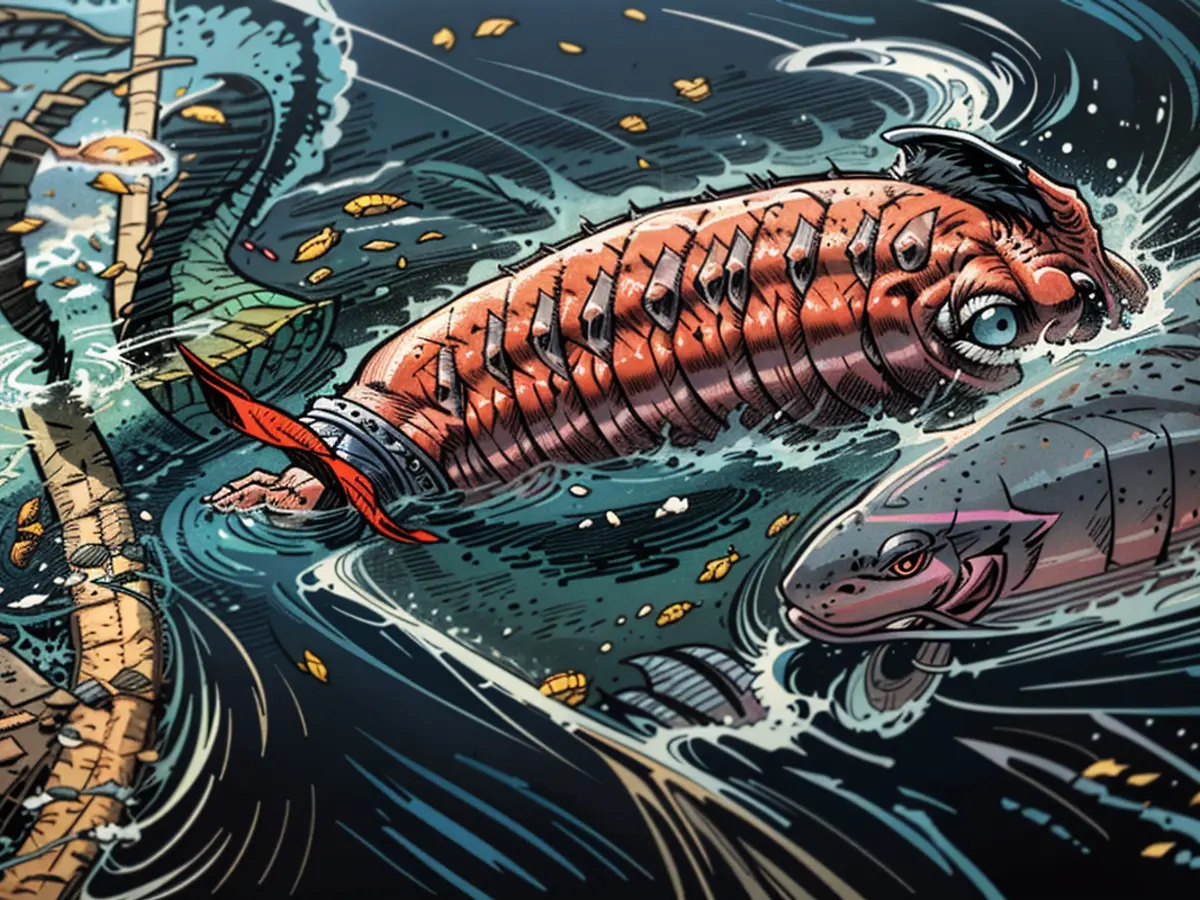- Evidence surfacing of extensive rainfall leading to fish mortality
Fish deaths in East Frisia are currently linked to the heavy rainfall of the past week, according to recent reports. The close timing suggests that this recent fish death episode might be a result of the heavy rain event, as stated by the Lower Saxony Water Management, Coastal Protection, and Nature Conservation Agency. The intense rainfall from last week led to flooding in certain areas of East Frisia. On Thursday, there were initial reports of "substantial fish deaths in Juismeer and adjacent waters," the agency revealed.
The district of Leer confirmed on Monday that multiple tons of deceased fish were involved. By then, it was already clear that the low oxygen levels in the water were to blame for the mass death. Regrettably, the oxygen levels have since started to rise again. Fishing associations are reportedly involved in the removal of the carcasses.
Increased oxygen consumption
The heavy rain washed organic matter into the waters, as reported by the Lower Saxony Water Management, Coastal Protection, and Nature Conservation Agency (NLWKN). This surge in organic matter led to increased oxygen consumption in the already oxygen-depleted waters due to high temperatures. Spokesperson for the Leer district emphasized on Monday that water from not only agricultural fields but also settlements was washed into the rivers. There seems to be no singular culprit.
Events may become more common due to climate change
Artificial oxygenation of the rivers was not seen as an effective solution due to their size, according to the NLWKN. Such incidents are currently not entirely avoidable and could potentially occur anywhere in Lower Saxony during heavy rain, which is becoming increasingly frequent due to climate change.
In light of climate change, a shift in societal perspectives is required. More space is needed for waters and floodplains, and less agricultural activity and fertilization of riparian areas. Lower Saxony's ban on the use of fertilizers and pesticides near waters, effective from 2023, is already helping to prevent fish deaths. However, it will take some time for the nutrients in the soil to significantly decrease.
- The Commission, as outlined in the Water Framework Directive, will need to adopt the necessary implementing acts referred to in Article 11 (2), which includes measures to improve water quality and prevent such events as the mass fish death in East Frisia, considering the increasing frequency of heavy rain due to climate change.
- To prevent future mass fish deaths associated with heavy rain events and increased oxygen consumption, the Commission's implementing acts should incorporate strategies for reducing agricultural runoff and enhancing nutrient retention in riparian areas, as proposed by Lower Saxony to adapt to climate change.








